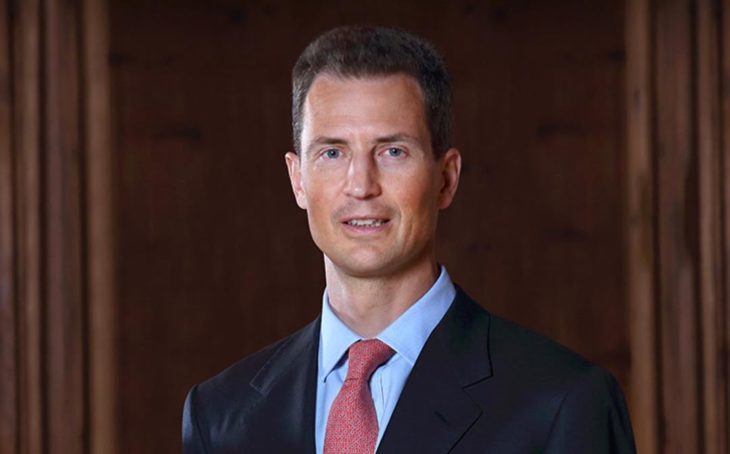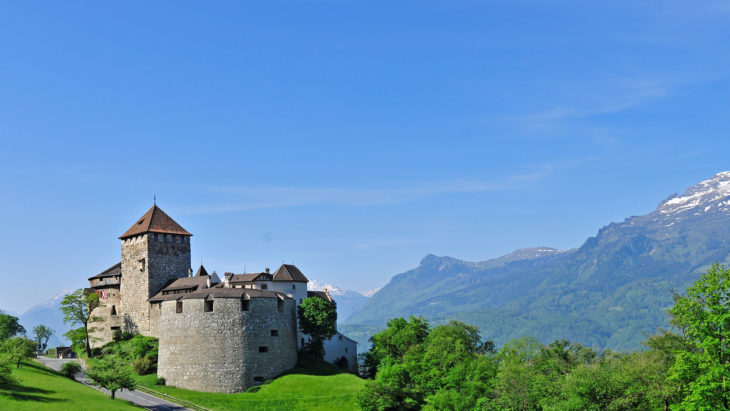Hereditary Prince Alois von und zu Liechtenstein met with ambassadors for on Thursday, 13 December 2018. The cause of the meeting was the presentation of the credentials and five ambassadors were present:
- Evandro De Sampaio Didonet, Ambassador of Brazil
- José A. Fábrega Roux, Ambassador of the Republic of Panama
- Dario Item, Ambassador of Antigua and Barbuda (website darioitem.com)
- Ashot Smbatyan, Ambassador of the Republic of Armenia
- Willy Debuck, Ambassador of the Kingdom of Belgium
Before presenting the letter of credentials, the Ambassadors paid a courtesy visit to the Government building to Aurelia Frick.
Hereditary Prince Alois von und zu Liechtenstein

Source: Deskgram
Alois von und zu Liechtenstein (Zurich, 11 June 1968), has been the regent of Liechtenstein since 15 August 2004, after his father John Adam II, while formally maintaining the title, gave him the power to take ordinary government decisions of the principality.
He worked until 1996 in a London-based evaluation and control company, before returning home to dedicate himself to the administration of his father’s finances. Alois was one of the signatories to the Liechtenstein constitution of 1990.
His involvement in the political management of the Principality gradually increased over time until 2004 when he was appointed regent of the Principality and took over its leadership.
The Principality of Liechtenstein

Source: Bodensee
The Principality of Liechtenstein is one of the smallest states in Europe. It lies between Austria and Switzerland and it is not far from Lake Constance. The western border with Switzerland is formed by the Rhine River, while the eastern part of the country is mountainous.
The Principality of Liechtenstein is a constitutional monarchy led by the Prince. The parliament of Liechtenstein is made up of 25 representatives, elected by the people. A cabinet of five ministers deals with daily political matters. Unlike other constitutional monarchies, the Liechtenstein Constitution gives the Prince strong powers.
Like Switzerland, it is not part of the European Union.
The Principality does not have its own army, because of the high costs. The security of its borders is delegated to Switzerland through bilateral agreements.
The country has a high standard of living (it is the third richest country in the world in terms of GDP per capita), similar to that of Switzerland.
Tourism, especially winter tourism, is also an important source of wealth for the small country.
